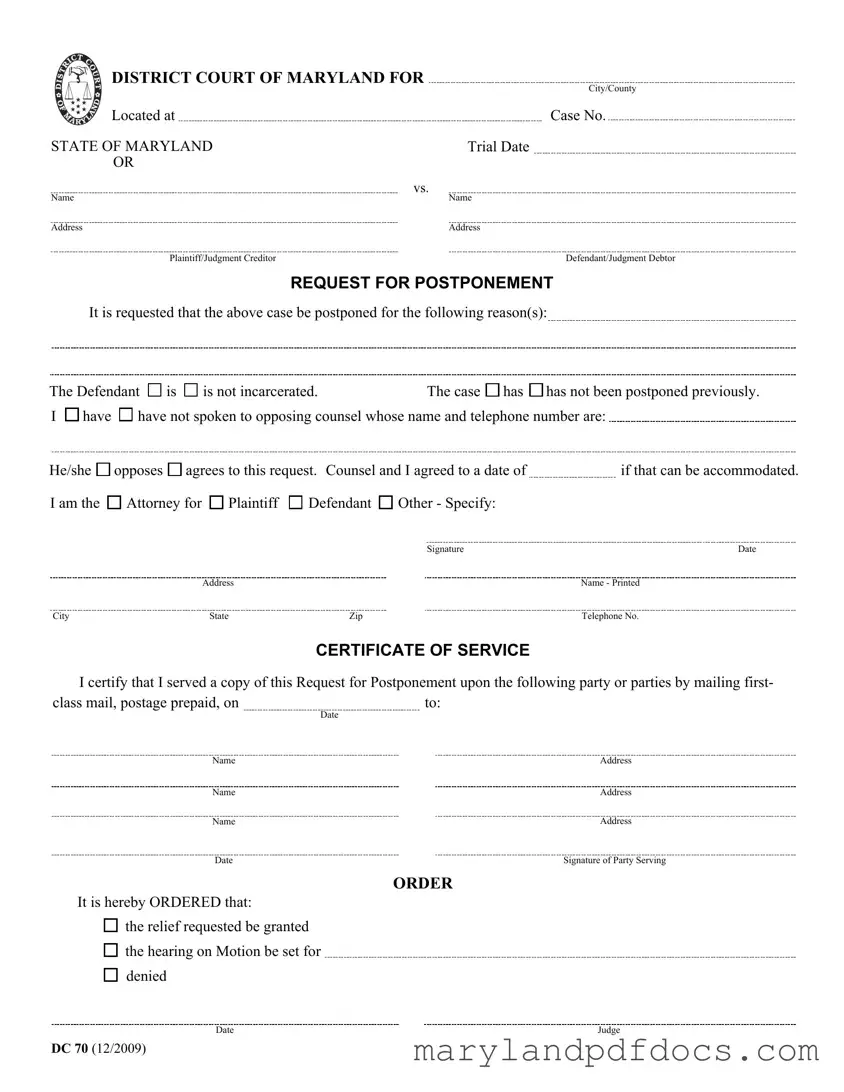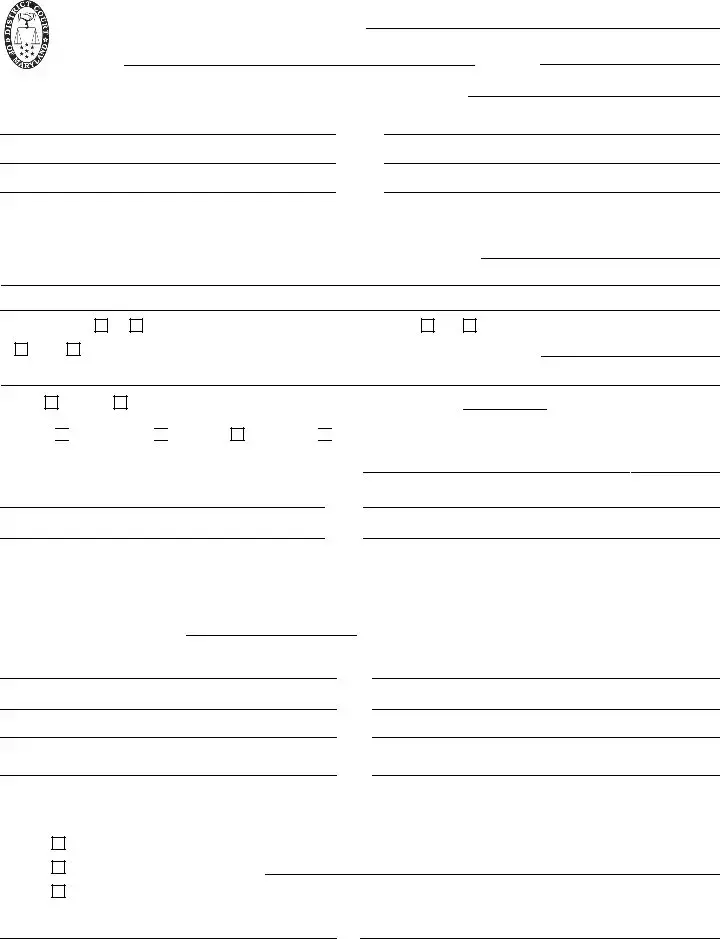Fill Out Your Maryland Dc 70 Template
The Maryland DC 70 form is a legal document used to request a postponement in a court case within the District Court of Maryland. This form captures essential details about the case, including the parties involved and the reasons for the postponement request. Completing this form accurately is crucial for ensuring that the court considers your request; click the button below to fill it out.
Launch Maryland Dc 70 Editor

Fill Out Your Maryland Dc 70 Template
Launch Maryland Dc 70 Editor

Launch Maryland Dc 70 Editor
or
Free Maryland Dc 70 PDF
You’ve already started — finish it
Fill out Maryland Dc 70 digitally in just minutes.


 Attorney for
Attorney for 
 Plaintiff
Plaintiff
 Other - Specify:
Other - Specify: